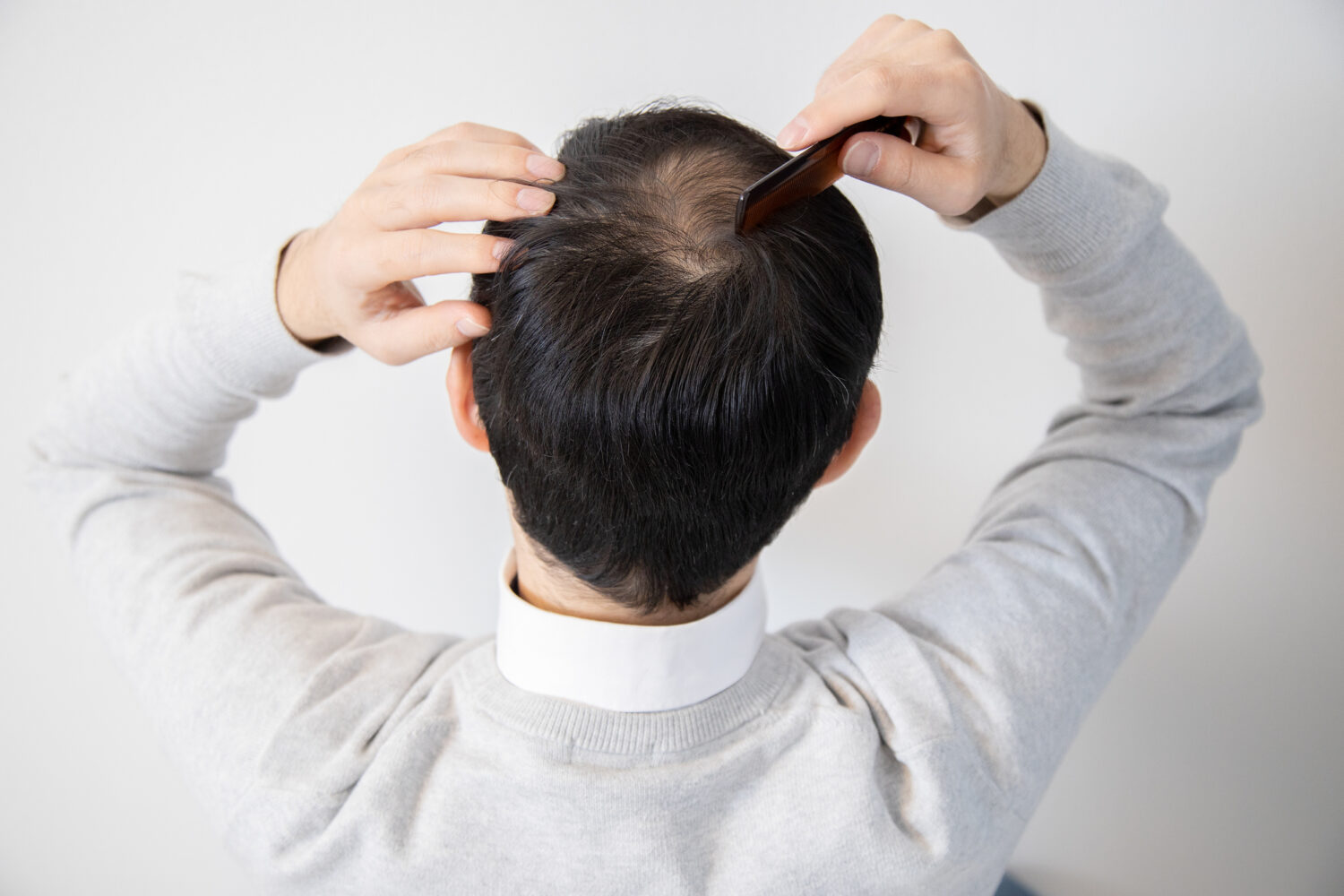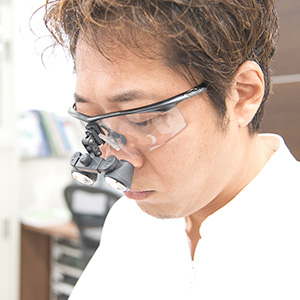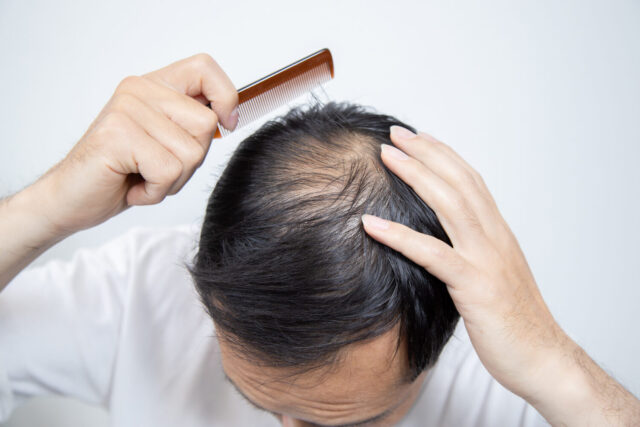
Many people are taking Propecia (Finasteride) and are not sure whether to stop using it. Or you are about to start Propecia and are wondering what will happen if you stop taking it halfway through?
On online forums, there are extreme articles such as “I’m so glad I stopped taking Propecia!” Some extreme articles like this can also be found on some of the online forums, so many people may be increasingly concerned.
This article provides a doctor’s perspective on readers’ concerns and questions about options if they do not feel Propecia is effective or are worried about side effects, and about AGA treatment options after Propecia use is discontinued. It provides practical information on how to discontinue use at the appropriate time and on subsequent hair care.
We will help you develop the right knowledge and understanding to help you find the best treatment for you.
As a clinic specializing in hair growth and hair loss, Osaka AGA Kato Clinic has a wealth of experience and achievements, and offers a wide range of Propecia and alternative treatments. Share your concerns in a free consultation and find a solution together with a specialist doctor. Click here to book on line easily.
この記事で説明する内容は?

Kentaro Kato, Hospital director of Osaka AGA Kato Clinic group, specializing in comprehensive hair treatment. We specialize in cutting-edge treatments for a variety of clinically proven effective treatments for thinning hair and hair loss. Graduated from Faculty of Medicine, Kinki University in 2001 Worked at plastic surgery of Osaka Medical and Pharmaceutical University Hospital as an anesthesiologist from 2001 to 2005. Worked as a head of plastic surgery at major cosmetic surgery, Hair Transplant Department from 2005 to 2011. Opened Osaka AGA Kato Clinic in 2011. Japan Society of Plastic and Reconstructive Surgery, Regular Member. The Japanese Society for Regenerative Medicine, Regular Member. World Academy of Anti-Aging & Regenerative Medicine, Regular Member.
When to Consider Discontinuing Propecia (Finasteride) Use

Propecia is an effective AGA treatment, but the decision to discontinue its use is a complex one. The following is a detailed explanation of when to consider discontinuing use.
Effectiveness not seen
Reactions to Propecia vary from person to person. If no effect is seen after a certain period of use, switching to another treatment option should be considered.
Cases which Propecia does not work may include;
- Genetic factors and hormonal imbalance
- AGA progression is already advanced
- Hair loss due to stress and nutritional deficiencies
Propecia is less effective in cases where the conversion of testosterone in the body is specific, as an example of genetic factors or hormonal balance problems. In these cases, treatment may need to be reviewed in consultation with a doctor.
Severe side effect
The side effects of Propecia depend on the individual’s constitution and health. The main side effects of Propecia include problems related to sexual function. Side effects related to sexual function include;
- Decrease in sexual desire
- Erectile dysfunction
- Decrease in semen volume
As these side effects only occur in some people, it is important to discuss with the doctor whether to discontinue the drug if the side effects are pronounced. Decisions must be tailored to the individual patient’s situation, taking into account other health conditions and the effects of psychological stress.
Treatment targets achieved
Cases where treatment goals are deemed to have been achieved include when significant improvement in the progression of hair loss or expected hair regrowth is observed. Once a certain period of time has elapsed since the start of treatment and, based on the assessment of the doctor, it is deemed that the targeted condition has been achieved, discontinuation of Propecia may be considered.
However, ongoing monitoring and evaluation is necessary, taking into account the risk of recurrence and long-term effects.
Occurrence of other health problems
Cases of discontinuation of Propecia in relation to other health problems include liver dysfunction and interactions with other drugs.
Long-term use of Propecia may strain the liver. It is therefore recommended that Propecia should be discontinued if there is liver dysfunction or if side effects are a concern when used in combination with other drugs.
It is important that these decisions are always made under the guidance of a doctor.
Long-term use of Propecia (Finasteride).

This section describes the possible side effects of long-term use of Propecia.
A typical side effect associated with long-term use of Propecia is problems related to sexual function. These include decreased sexual desire, erectile dysfunction and decreased semen volume, which may persist over time in some users.
Effects on the liver and other organs
Finasteride, a component of Propecia, is metabolized mainly in the liver and is therefore not recommended for use in people with liver dysfunction. Long-term use may rarely cause liver effects.
Although the direct effects on other organs are considered to be minimal, it is important that they are always used under medical supervision.
Initial hair loss
Some people may experience initial hair loss with finasteride, although this is rare.
Changes in effectiveness with long-term use
The effects of Propecia may vary over time. Even if the initial effect is pronounced, it has been reported that this effect may decrease over time.
Regular visits to the doctor and monitoring of hair condition are important to assess effectiveness and ensure appropriate continuation of treatment.
Changes in Thinning hair after Stopping Propecia (Finasteride)

The progression of thinning hair after discontinuation of Propecia varies from person to person, but without alternative treatment options, it is usually likely to return to its pre-discontinuation state. Propecia inhibits the production of DHT and slows the progression of hair loss, so it is common for hair loss to reappear when its action is lost.
Measures to prevent recurrence.
The following are important to prevent recurrence.
- Alternative treatment
- Lifestyle improvements
- Nutritional improvement
- Stress management
Specifically, a balanced diet, regular sleep, moderate exercise and relaxation techniques to reduce stress are effective.
The use of other drugs such as minoxidil is another option. Alternative treatments should be undertaken under the advice of a doctor.
Alternative AGA treatments other than Propecia

This section details the AGA treatments that can be considered after stopping Propecia.
Topical medications such as minoxidil
Minoxidil is widely used as a topical treatment for AGA. Minoxidil stimulates the activation of hair matrix cells and promotes hair growth.
Applied directly to the scalp on a daily basis, it can improve thinning hair. However, as the effects and side effects vary from person to person, it is important to consult a medical specialist for advice on use.
More information about minoxidil is available in this article.
Laser treatment
Laser treatment uses light of specific wavelengths to stimulate blood circulation in the scalp and activate hair matrix cells. The light reaches deep into the scalp and acts directly on the hair follicles, thereby stimulating hair growth.
Treatment is usually carried out in a clinic and requires several sessions.
PRP treatment
In PRP treatment, plasma rich in growth factors is isolated from the patient’s own blood, which is then injected into the scalp. These growth factors stimulate the hair matrix cells and promote the regeneration and strengthening of the hair.
The effectiveness of the treatment varies from person to person, but a marked improvement in hair can be seen depending on the condition of the patient’s scalp.
For more information on PRP (Polyplatelet Plasma) Hair Regeneration Medicine / PRPGH (Growth Hair).
Natural remedy
Natural remedies include scalp massage and treatments with herbs and aloe vera.
These can stimulate blood circulation and support hair health.
Nutrition and lifestyle improvements
Proper nutrition is essential for hair health. In particular, it is recommended to consume foods rich in biotin, zinc, iron and vitamins A, E and C. Moderate exercise also helps prevent thinning hair by stimulating blood circulation and reducing stress.
Adequate sleep and proper water intake are also important for maintaining overall health and hair health.
Doctor’s Perspective: Advice on Discontinuing Propecia use.

When considering stopping the use of Propecia, doctors consider the following;
- Extent of side effects
- Effectiveness of treatment
- Overall health status of the patient
The key is an individual approach tailored to each patient’s situation. Discontinuation is recommended if side effects are significant or if there is concern about interactions with other health problems.
However, even when Propecia is discontinued, ongoing treatment is necessary to manage the symptoms of AGA, including transitioning to another treatment modality.
Working closely with a doctor and closely monitoring the progress of treatment is essential to the patient’s health and the success of treatment.
Conclusion
This article delves deeper into the discontinuation of Propecia (finasteride) and subsequent AGA treatment. They detailed the different situations in which they would consider discontinuing use of Propecia, such as when it is not working, when side effects are noticeable, when treatment goals have been achieved, and in relation to other health issues. In addition, alternative AGA treatments other than Propecia and advice from a doctor’s perspective were provided.
When considering discontinuing the use of Propecia, it is important to make the right decision and move on to other treatment options. If you are not sure about the quality of the AGA treatment you are currently receiving, a second opinion is an effective option.
At the Osaka AGA Kato Clinic, we offer tailor-made AGA/FAGA prescription medicines for each individual patient. Patients who need a second opinion are welcome to contact us.
Get to know your individual treatment plan with a free consultation. You can book on Line now and experience the benefits of hair growth.









